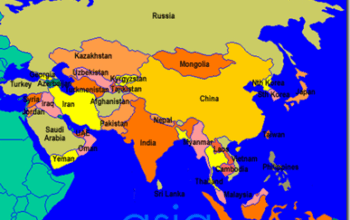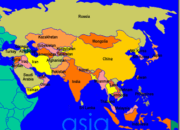Throughout history, humanity has observed a phenomenon known as “brain drain,” wherein skilled individuals migrate from their home countries to seek better opportunities in more affluent nations. This exodus can have profound implications for the economies and societies left behind, raising questions about the sustainability of such migrations. Are we witnessing the first evidence of an acceleration in this trend? To explore this concept, one must delve into the intricacies of the global labor market, the implications for cognitive diversity, and the multifaceted dimensions of international cooperation and competition.
The contemporary era presents an intriguing tableau of challenges and opportunities. While globalization promises prosperity and progress, it simultaneously engenders a paradox that manifests in the form of skilled labor migration. As countries actively cultivate environments conducive to innovation and creativity, they inadvertently lure professionals away from developing regions where they are often sorely needed. The irony is palpable: the very nations that require scientific advancement and technological expertise find themselves bereft of those capable of propelling such initiatives forward. This dilemma invites us to ponder whether the phenomenon of brain drain is indeed escalating in its prevalence and consequence.
One could pose the question: what ignites the spark that compels individuals, often highly educated and skilled, to forsake their homeland for foreign shores? The motivations are manifold, ranging from economic incentives and academic pursuits to the quest for improved living conditions. The allure of higher salaries, superior research infrastructure, and enhanced educational opportunities are potent catalysts. In an increasingly interconnected world, the magnetism of advanced economies beckons with promises that are difficult to resist.
However, these migrations lead to a multifaceted dilemma for the nations losing their talent. There is a poignant loss of human capital, which is irreplaceable and detrimental to their growth. The decline in a nation’s intellectual base can stifle innovation and exacerbate socio-economic challenges. Countries may find themselves caught in a vicious cycle where the exodus of skilled labor leads to underperformance in critical sectors such as healthcare, education, and technology. This, in turn, contributes to societal stagnation, fostering an environment that may further compel the remaining skilled workforce to migrate.
The short-term advantages for the receiving nations are evident. Increased diversity in thought, innovation, and cultural exchange can enhance productivity and creativity. Countries like the United States, Canada, and several European nations have benefitted significantly from the influx of foreign talent, fostering ecosystems of innovation that have set the stage for breakthroughs in various fields. Nonetheless, this leads to a pressing ethical inquiry: is it equitable for wealthier nations to benefit from the depletion of talent in less affluent regions? The moral ramifications of this brain drain are profound and merit critical examination.
Furthermore, one must consider the potential long-term implications of this trend. Should this exodus continue unabated, the global landscape may experience a form of cognitive homogenization. A great paradox lies in the evolving nature of knowledge and expertise; while mobility enhances individual prospects, it may simultaneously dilute the unique cultural and intellectual contributions of diverse populations. A world dominated by a few centers of excellence risks stifling the very innovation that thrives in a pluralistic environment.
In light of these observations, the question arises: how can nations devise strategies to reverse the tide of brain drain? Policy interventions merit exploration, particularly those oriented towards enhancing the local environment for innovation and growth. Investments in education, infrastructure, and research institutions can serve as a formidable countermeasure. By creating a nurturing ecosystem that fosters creativity and intellectual rigor, nations stand a better chance of retaining their brightest minds.
Moreover, collaborative international frameworks could be developed to mitigate the detrimental effects of brain drain. For instance, incentivizing return migration or establishing diaspora networks could channel the expertise garnered abroad back into the home countries. Such collaborative strategies may cultivate transnational networks that capitalize on the strengths of both home and host nations, forging partnerships that foster mutual advancement. The ultimate goal would be to create a nurturing environment that encourages local talent to remain while simultaneously facilitating knowledge exchange across borders.
While the trajectory of brain drain poses undeniable challenges, it also presents an opportunity for nations to reassess their priorities. The question remains whether individuals possess the agency to decide their path freely when couched in the context of global inequalities. As globalization weaves more intricate patterns in the fabric of human society, it will be vital to examine the intertwined destinies of nations affected by such dichotomies of opportunity.
The imperative is clear: societies must strive to foster resilience and innovation in tandem. Acknowledging that brain drain is not merely an economic phenomenon, but a complex tapestry interwoven with cultural, ethical, and sociopolitical threads is essential. There is an urgent need for a reevaluation of how nations perceive the movement of skilled professionals, as well as how they address the underlying factors driving such migrations. This multifaceted inquiry could serve as the catalyst for a more equitable distribution of knowledge and expertise, ultimately benefiting the global community. Thus, one must boldly inquire: can we turn the tide of brain drain into a symbiotic exchange that enriches all parties involved?












